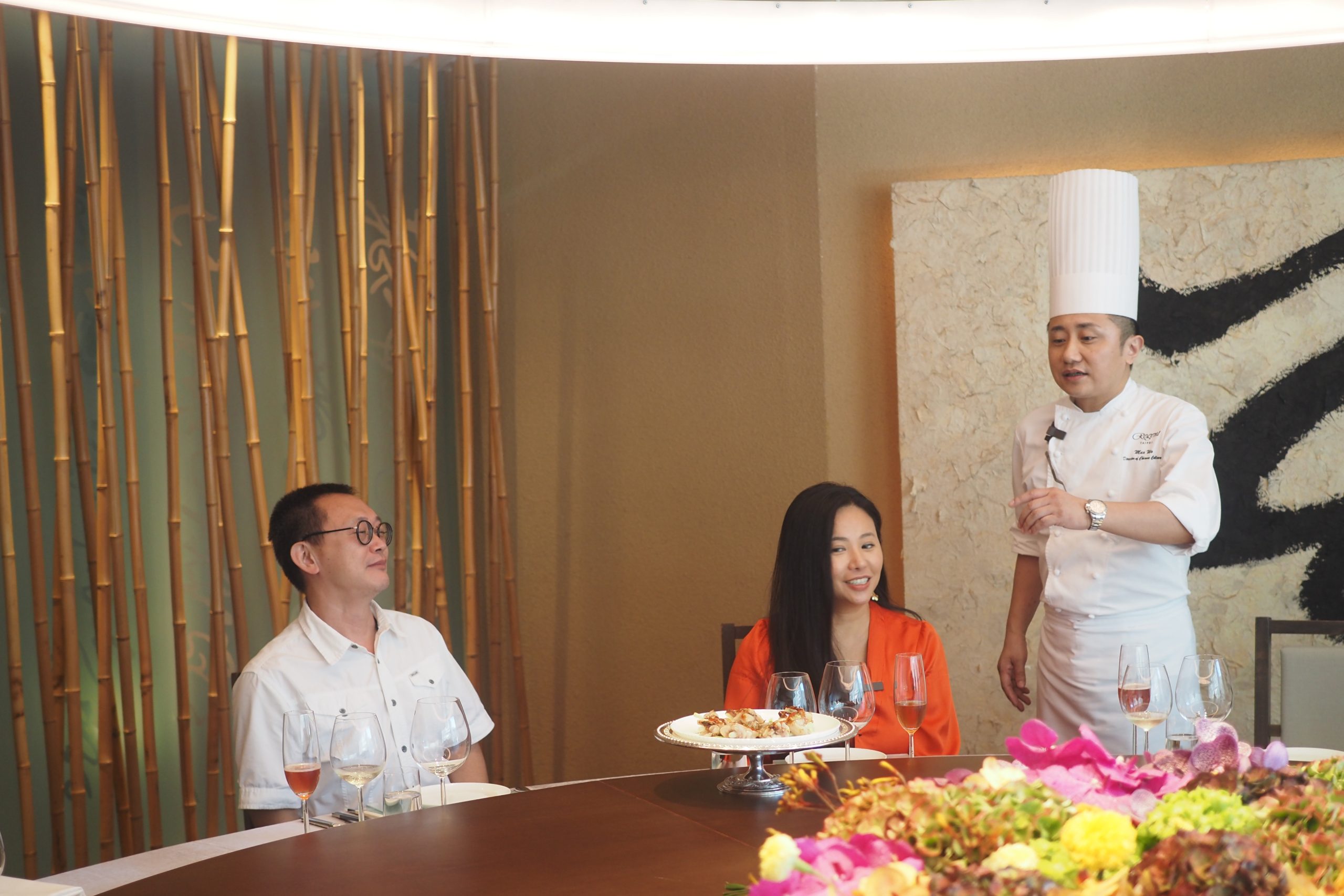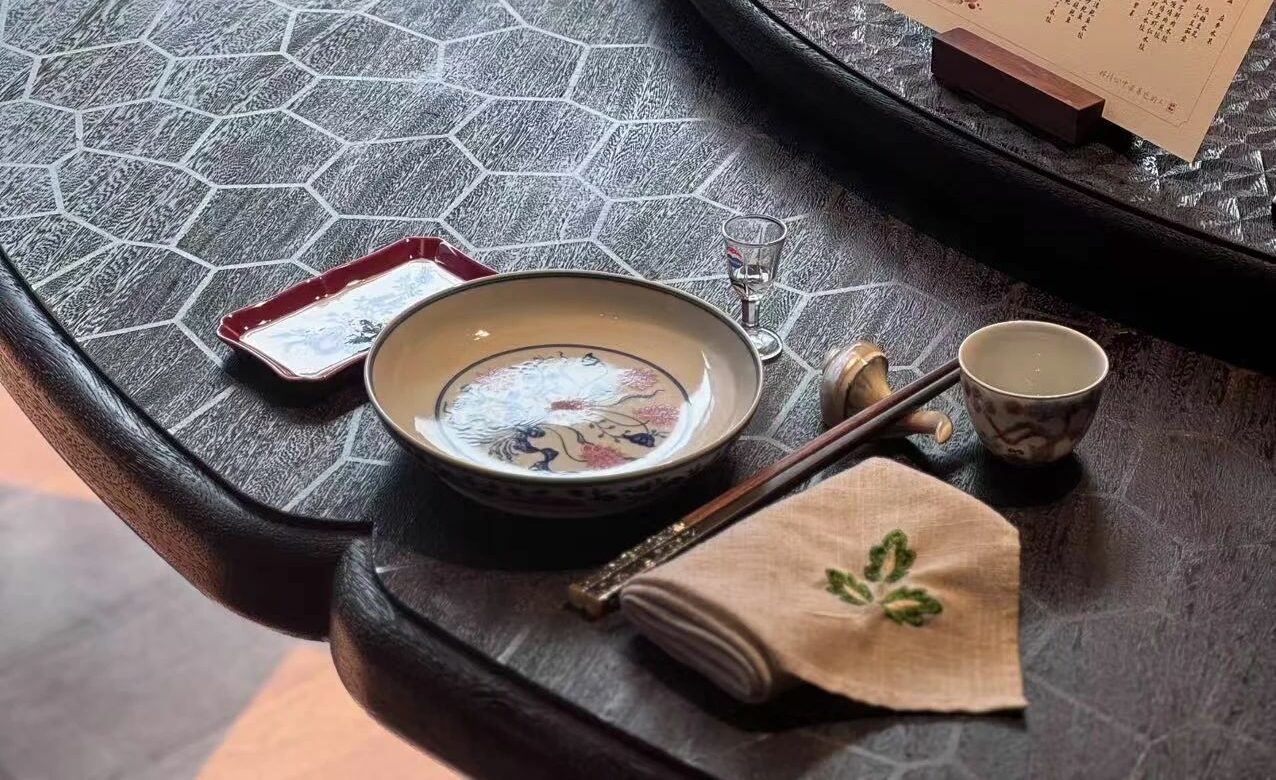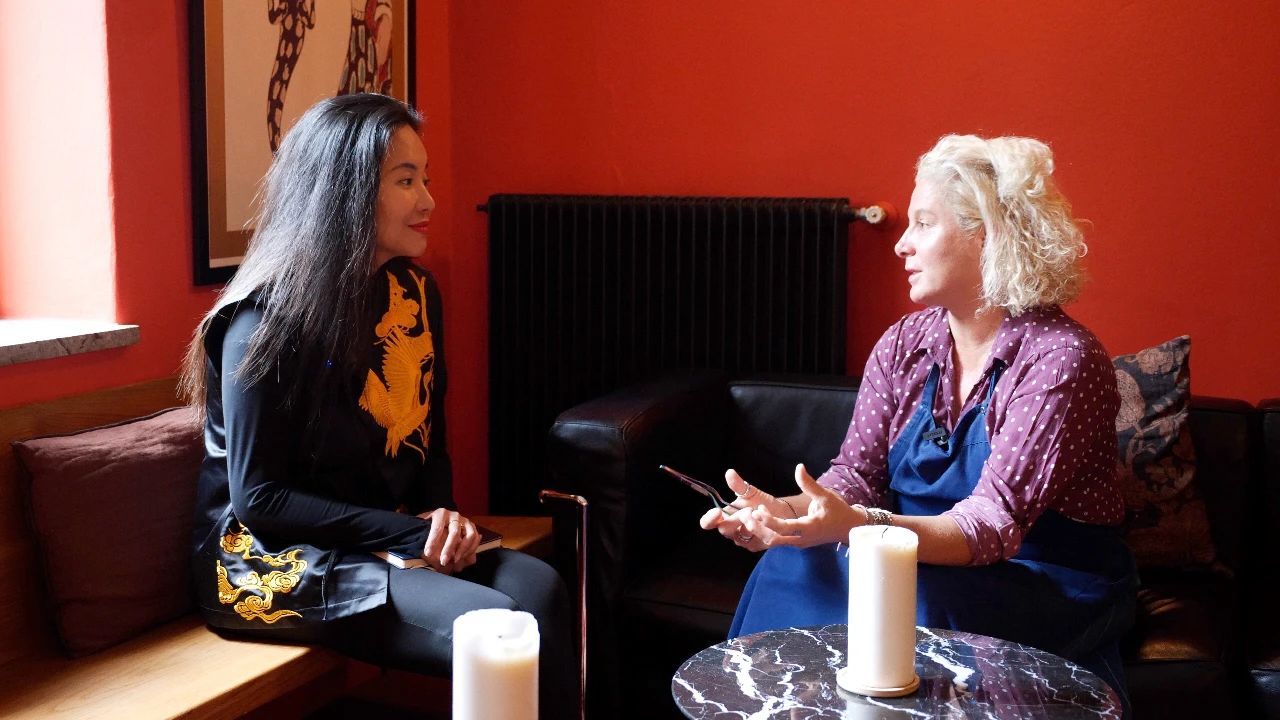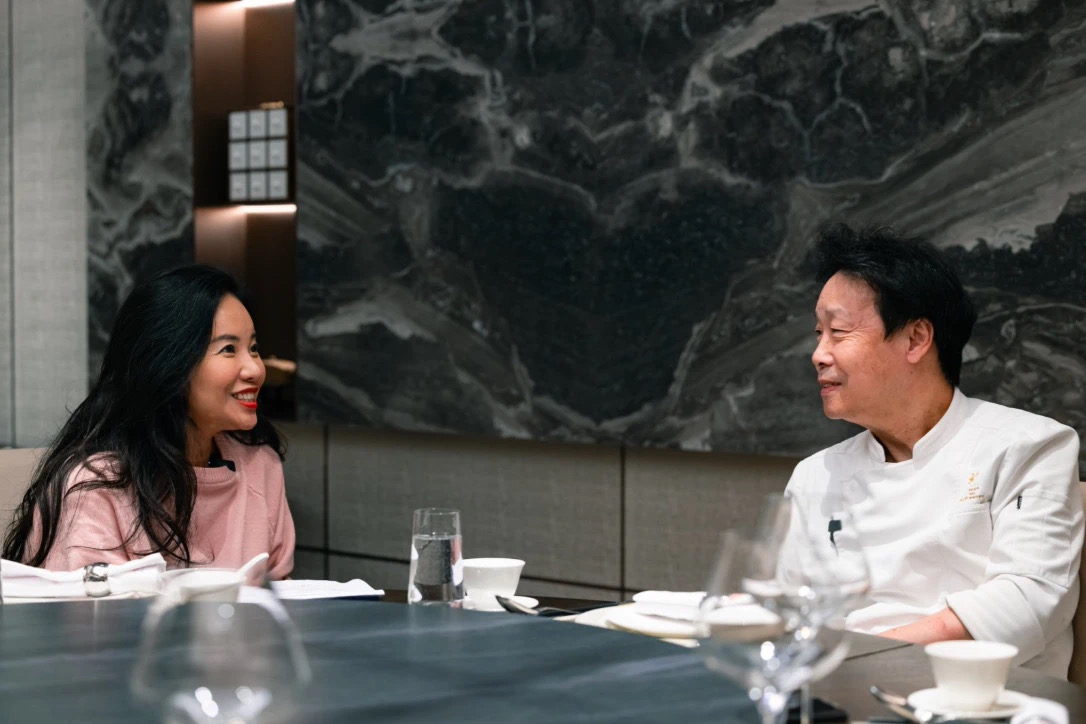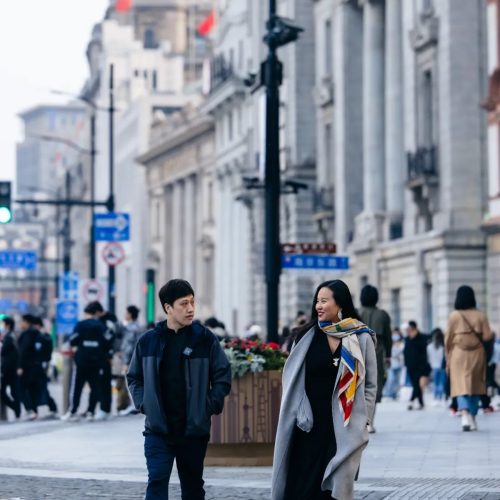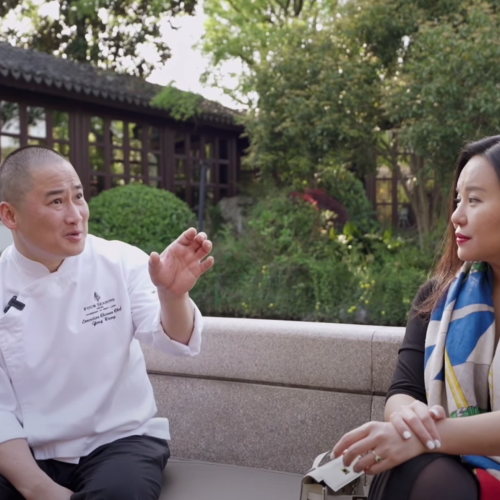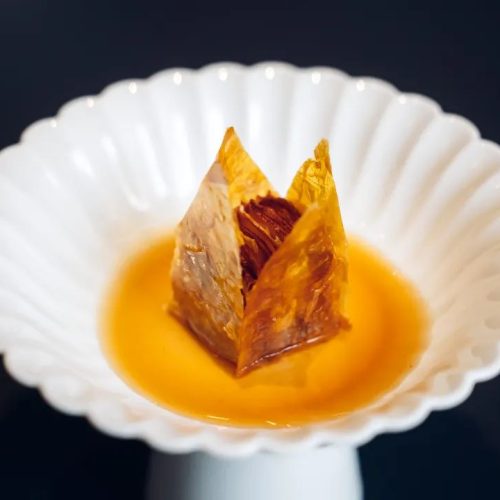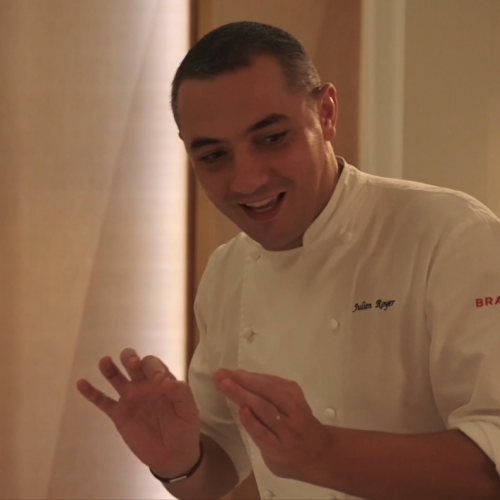Cantonese cuisine emphasizes techniques and there is no standard procedure. It usually takes years of hard work for a chef majoring Cantonese cuisine to master the essence of it. Chef Max Wo, a celebrated graduate from the famous fine dining spot Lei Garden in Hong Kong with over thirty years of culinary experience, has welcomed renowned chefs both from Taiwan and from other countries at Silks House in Taipei since he took the helm from 2019. It has not picked up a Michelin star yet but it is my No. 1 Cantonese cuisine restaurant in Taipei.
Before he came to Taipei, he held important positions in Hong Kong’s Lei Garden Group, Singapore’s and Thailand’s Crystal Jade, Macao’s Sand Macao, and many more places. In 2013, he led XIANG TAO at Ritz-Carlton Hotel in Osaka, Japan to earn one Michelin star. His culinary journey around the world has allowed him to utilize Cantonese cuisine’s cooking techniques to demonstrate the characteristics of ingredients from all around the world.
Pastry Chef
Chef Wo has shown great talents at a young age. When he was a teenager, he learned pastry making working part-time at Maxim’s Caterers in Hong Kong. In two years, he became familiar with almost all kinds of pastry production methods and was regarded as one of the youngest and most promising talents within the company. On top of training with Maxim’s top pastry chefs in various fields, he was in charge of producing Maxim’s major festive product – Mid-Autumn mooncakes – every year. Later on he switched from pastry to Cantonese cuisine and was introduced by a friend to Lei Garden.


Focusing on classic Cantonese dishes, Lei Garden has been a breeding ground for some of the world’s most celebrated Chinese chefs, earning itself nicknames including the “West Point” of Cantonese cuisine for its harsh style in the kitchen – hard work that rivals military training at times. Recalling the three years training there, Chef Wo describes Lei Garden as a place that “crashes your ego before teaching you how to cook”. He jokes about his feelings towards Lei Garden as being “on the edge of love and hate”, but admits that if he hadn’t loved it, he wouldn’t be who he is today. It seems hard work does pay off.
World Traveller
The rigorous training at Lei Garden has ensured chefs are graduated with solid knowledge of Cantonese cuisine. After leaving Lei Garden, Chef Wo worked as a sous chef at Crystal Jade in Singapore, before being relocated to the Bangkok branch as the head chef. But it was in Japan that Wo received his first Michelin star.
Chef Wo recalled how he succeeded in the interview with the Ritz-Carlton Osaka. When the General Manager of the hotel questioned him about the kitchen sanitation of Chinese restaurants, he mentioned a blue signal light in his kitchen that serves to remind staff to wash their hands every 30 minutes. It was the ability to observe the surroundings during a busy schedule that finally got the nod from the General Manager of Ritz-Carlton.

Chinese cuisine has a focus on stir-frying and heat control, thus requiring a lot of preparation before getting down to the wok. Unlike Western cooking which usually has exact recipes and standard procedures, a Chinese kitchen can hardly compete in terms of cleanliness and tidiness. For example, a Chinese kitchen would have a team dedicated only to preparing ingredients, and the chef would stack bamboo baskets loaded with ingredients on top of each other to save space in the wok area, simply because there are so many ingredients to manage at the same time. It may look messy but there is order amidst chaos. This is the world of Chinese cuisine, sometimes serving a dozen courses all together and sometimes giving you a menu with a hundred dishes. For Japanese chefs who are usually meticulous about cleanliness in the kitchen, this is something they find “exotic”, even incomprehensible.Chef Wo received a star in just five months after arriving at the Ritz-Carlton Osaka. Later, he went to Sands Cotai Central in Macau and was invited to Taipei in 2016. Like many Hong Kong chefs, he talked about how much he loves the warmth and hospitality of Taiwan people.
A Great Chef Must First Be a Great Person
We talked about an accident he dealt with in Hong Kong, and I was impressed by his ability to solve problems in emergency. One year when he returned to open a restaurant in Hong Kong, the big boss had a falling out with the then head chef and fired him the day before the opening. As a result, the head chef left but taking with him most of the kitchen staff. Chef Wo stood up and called for help from his former colleagues in Lei Garden and other friends. The restaurant successfully opened the next day. A great chef must first be a great person, said Chef Wo.

Six years in Taiwan has seen Chef Wo become increasingly familiar with the characteristics of local ingredients. At Silks House, soups are made with natural spring water sourced from the Jinmian Mountain of Yilan County in Northeastern Taiwan, so that the slightly sweet and pristine taste of the spring water can accentuate and harness the best of the ingredients.
Limitations of Local Produce
Chef Wo understands the inherent limitations of local ingredients. Due to restrictions on production and lack of consistent quality, it is difficult to obtain enough local produce to supply a restaurant of this capacity. Although it is trendy to go local on everything, he does incorporate imported ingredients if necessary, according to the same strict standards as he would select local ingredients. I remember once when we were making a reservation, Chef Wo insisted on confirming the catch before finalising the menu the day before the meal.


Classic Cantonese Cuisine
Chef Wo aims to provide traditional, pure Cantonese cuisine at Silks House. His personal favourites on the menu are the lavish Xishi Soup Rice, skill-based Deep-fried Chicken, and the iconic Char Siu Pork.
A seasonal specialty was Steamed King Crab with Egg and Shaoxing Wine. Hokkaido king crab was steamed in high-grade Shaoxing yellow wine. An orange-coloured stock made with crab leg and shell was used to steam free-range eggs from Hualien, paired with crab roe steamed again in Huadiao wine to produce a long-lasting aroma.



The Signature Crispy King Crab Meat boasted a secret recipe from Lei Garden – a meringue batter that thinly enrobed the crab shell to give it a crunchy surface that locks in the juice without feeling the batter in the mouth. Another dish featured premium fish maw from the Middle East, stewed in chicken and Jinhua ham consommé with dried matsutake mushrooms. Next up was Sautéed Pomfret Fillet with Chinese Mustard Cabbage. Wild Japanese pomfret was enhanced by mustard cabbage from Chaoshan in Guangdong province, local corn shoots and water chestnuts from Zhanghua on the west coast of Taiwan, to add texture and complexity.



A signature dish on the menu, Xishi Soup Rice presented a stunning soup base made with lobster, mud crab and white prawns simmered for three to four hours to bring out the essential seafood umami. Before serving, dried scallops and king crab meat from Hokkaido, Australian king prawns, Canadian mussels, and seasonal vegetables were added to make the vibrant, dark orange soup even more luscious. When the crispy puffed jasmine rice jumped into the bubbling red sea, I felt every pore in my body open up as vital fragrance danced on my nose.
The Deep-fried Radish Pastry also stood out. Sweet and juicy Japanese white radish was peeled and shredded to be filled in a hundred golden layers of paper-thin, crispy pastry crust. Even the bottom was fried to perfect neatness, a must-try at Silks House.


Cantonese cuisine is so vast and profound that some special cookers alone are captivating. Chef Wo believes that the soul of Cantonese cuisine lies in fresh ingredients, seasonality, and heat control for stir-fried dishes. Chef Wo’s emphasis on drilling and his well-rounded skills reminds me of Chef Tam Kwok Fung of Wing Lei Palace in Macau. Perhaps because of their globetrotting experience, the chefs are amicable and humorous in the dining room, but can be strict and demanding in the kitchen.
A True King Without a Crown
Having been awarded a Michelin star in the highly competitive Japan, Chef Wo must have wanted recognition for his team at Taipei as well. He is a gentleman who loves humour and surfing, a hobby that befits his courageous character.
The restaurant is always packed with diners and has become the top choice of many Michelin-starred chefs in Taipei. In my opinion, Silks House’s quality ingredients and refined cooking should have earned it at least two stars already.


-END-
Author:Jocelyn 华姐
Photo:Peray



